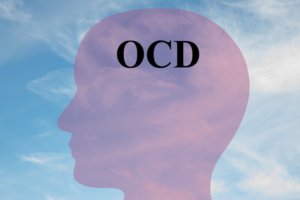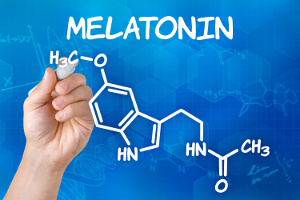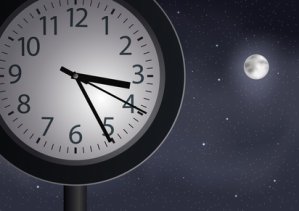afterLoad (456.22KB) (774μs)
afterInitialise (1.27MB) (26.7ms)
afterRoute (870.39KB) (15.77ms)
beforeRenderComponent com_tags (20.52KB) (3.21ms)
afterRenderComponent com_tags (1.64MB) (193ms)
afterDispatch (27.09KB) (5.06ms)
beforeRenderRawModule mod_articles_category (READ MORE...) (388.12KB) (25.16ms)
Before Access::preloadComponents (all components) (56.7KB) (589μs)
After Access::preloadComponents (all components) (103.05KB) (10.53ms)
Before Access::getAssetRules (id:8 name:com_content) (840B) (24μs)
After Access::getAssetRules (id:8 name:com_content) (7.05KB) (50μs)
afterRenderRawModule mod_articles_category (READ MORE...) (6.33KB) (183ms)
beforeRenderRawModule mod_tags_popular (Search) (4.81KB) (50μs)
afterRenderRawModule mod_tags_popular (Search) (1.77KB) (136ms)
beforeRenderRawModule mod_custom (Remember to download Heart Healthy Seniors) (816B) (38μs)
afterRenderRawModule mod_custom (Remember to download Heart Healthy Seniors) (4.86KB) (1.22ms)
beforeRenderRawModule mod_custom (Get additionel and more detailed knowledge ) (752B) (22μs)
afterRenderRawModule mod_custom (Get additionel and more detailed knowledge ) (1.67KB) (39μs)
beforeRenderRawModule mod_custom (BOOST YOUR IMMUNE DEFENSE) (608B) (11μs)
afterRenderRawModule mod_custom (BOOST YOUR IMMUNE DEFENSE) (928B) (35μs)
beforeRenderRawModule mod_custom (Are you taking supplements) (736B) (11μs)
afterRenderRawModule mod_custom (Are you taking supplements) (1.03KB) (20μs)
beforeRenderRawModule mod_custom (Antiaging) (720B) (9μs)
afterRenderRawModule mod_custom (Antiaging) (1.02KB) (19μs)
beforeRenderRawModule mod_custom (Exercise) (720B) (9μs)
afterRenderRawModule mod_custom (Exercise) (1.02KB) (18μs)
beforeRenderRawModule mod_custom (Check this before you buy a Q10 product) (752B) (8μs)
afterRenderRawModule mod_custom (Check this before you buy a Q10 product) (944B) (19μs)
beforeRenderRawModule mod_custom (Chronic fatigue tied Alan to his bed but Q10 capsules saved him:) (245.53KB) (6.34ms)
afterRenderRawModule mod_custom (Chronic fatigue tied Alan to his bed but Q10 capsules saved him:) (960B) (49μs)
beforeRenderModule mod_custom (Chronic fatigue tied Alan to his bed but Q10 capsules saved him:) (768B) (6μs)
afterRenderModule mod_custom (Chronic fatigue tied Alan to his bed but Q10 capsules saved him:) (1.3KB) (74μs)
beforeRenderRawModule mod_custom (Cholesterol-lowering without side effects:) (368B) (15μs)
afterRenderRawModule mod_custom (Cholesterol-lowering without side effects:) (2.19KB) (33μs)
beforeRenderModule mod_custom (Cholesterol-lowering without side effects:) (752B) (3μs)
afterRenderModule mod_custom (Cholesterol-lowering without side effects:) (1.28KB) (40μs)
beforeRenderModule mod_articles_category (READ MORE...) (21.32KB) (1.1ms)
afterRenderModule mod_articles_category (READ MORE...) (1.25KB) (69μs)
beforeRenderModule mod_tags_popular (Search) (5.17KB) (15μs)
afterRenderModule mod_tags_popular (Search) (1.27KB) (25μs)
beforeRenderModule mod_custom (Remember to download Heart Healthy Seniors) (1.17KB) (12μs)
afterRenderModule mod_custom (Remember to download Heart Healthy Seniors) (1.3KB) (21μs)
beforeRenderModule mod_custom (Get additionel and more detailed knowledge ) (368B) (10μs)
afterRenderModule mod_custom (Get additionel and more detailed knowledge ) (1.3KB) (21μs)
beforeRenderModule mod_custom (BOOST YOUR IMMUNE DEFENSE) (224B) (10μs)
afterRenderModule mod_custom (BOOST YOUR IMMUNE DEFENSE) (1.28KB) (20μs)
beforeRenderModule mod_custom (Are you taking supplements) (352B) (9μs)
afterRenderModule mod_custom (Are you taking supplements) (1.28KB) (21μs)
beforeRenderModule mod_custom (Antiaging) (336B) (8μs)
afterRenderModule mod_custom (Antiaging) (1.27KB) (20μs)
beforeRenderModule mod_custom (Exercise) (336B) (8μs)
afterRenderModule mod_custom (Exercise) (1.25KB) (20μs)
beforeRenderModule mod_custom (Check this before you buy a Q10 product) (352B) (9μs)
afterRenderModule mod_custom (Check this before you buy a Q10 product) (1.28KB) (20μs)
beforeRenderRawModule mod_menu (Main menu-US) (20.94KB) (521μs)
afterRenderRawModule mod_menu (Main menu-US) (152.66KB) (8.8ms)
beforeRenderModule mod_menu (Main menu-US) (720B) (6μs)
afterRenderModule mod_menu (Main menu-US) (4.36KB) (66μs)
beforeRenderRawModule mod_languages (Sprogskift) (3.44KB) (22μs)
afterRenderRawModule mod_languages (Sprogskift) (26.84KB) (5.56ms)
beforeRenderModule mod_languages (Sprogskift) (720B) (6μs)
afterRenderModule mod_languages (Sprogskift) (5.31KB) (24μs)
beforeRenderRawModule mod_finder () (6.34KB) (13μs)
afterRenderRawModule mod_finder () (219.66KB) (12.19ms)
beforeRenderModule mod_finder () (704B) (5μs)
afterRenderModule mod_finder () (5.79KB) (37μs)
beforeRenderRawModule mod_custom () (6.62KB) (170μs)
afterRenderRawModule mod_custom () (22.66KB) (5.54ms)
beforeRenderModule mod_custom () (704B) (6μs)
afterRenderModule mod_custom () (1.23KB) (58μs)
beforeRenderRawModule mod_menu (Main menu-US) (5.07KB) (131μs)
afterRenderRawModule mod_menu (Main menu-US) (5.8KB) (6.99ms)
beforeRenderModule mod_menu (Main menu-US) (720B) (5μs)
afterRenderModule mod_menu (Main menu-US) (1.25KB) (58μs)
beforeRenderRawModule mod_languages (Sprogskift Mobil) (912B) (19μs)
afterRenderRawModule mod_languages (Sprogskift Mobil) (3.89KB) (4.81ms)
beforeRenderModule mod_languages (Sprogskift Mobil) (720B) (6μs)
afterRenderModule mod_languages (Sprogskift Mobil) (1.27KB) (37μs)
beforeRenderRawModule mod_finder () (2.3KB) (12μs)
afterRenderRawModule mod_finder () (6.29KB) (5.87ms)
beforeRenderModule mod_finder () (704B) (5μs)
afterRenderModule mod_finder () (1.23KB) (52μs)
beforeRenderRawModule mod_custom () (8.66KB) (210μs)
afterRenderRawModule mod_custom () (904B) (181μs)
beforeRenderModule mod_custom () (704B) (3μs)
afterRenderModule mod_custom () (2.43KB) (26μs)
beforeRenderRawModule mod_custom () (688B) (82μs)
afterRenderRawModule mod_custom () (896B) (95μs)
beforeRenderModule mod_custom () (704B) (3μs)
afterRenderModule mod_custom () (2.71KB) (22μs)
afterRender (316.21KB) (31.76ms)
| 1 x afterRenderComponent com_tags (1.64MB) (27.79%) | 192.85ms |
| 1 x afterRenderRawModule mod_articles_category (READ MORE...) (6.33KB) (26.38%) | 183.03ms |
| 1 x afterRenderRawModule mod_tags_popular (Search) (1.77KB) (19.63%) | 136.22ms |
| 1 x afterRender (316.21KB) (4.58%) | 31.76ms |
| 1 x afterInitialise (1.27MB) (3.85%) | 26.70ms |
| 1 x beforeRenderRawModule mod_articles_category (READ MORE...) (388.12KB) (3.63%) | 25.16ms |
| 1 x afterRoute (870.39KB) (2.27%) | 15.77ms |
| 1 x afterRenderRawModule mod_finder () (219.66KB) (1.76%) | 12.19ms |
| 1 x After Access::preloadComponents (all components) (103.05KB) (1.52%) | 10.53ms |
| 1 x afterRenderRawModule mod_menu (Main menu-US) (152.66KB) (1.27%) | 8.80ms |
| 1 x afterRenderRawModule mod_menu (Main menu-US) (5.8KB) (1.01%) | 6.99ms |
| 1 x beforeRenderRawModule mod_custom (Chronic fatigue tied Alan to his bed but Q10 capsules saved him:) (245.53KB) (0.91%) | 6.34ms |
| 1 x afterRenderRawModule mod_finder () (6.29KB) (0.85%) | 5.87ms |
| 1 x afterRenderRawModule mod_languages (Sprogskift) (26.84KB) (0.8%) | 5.56ms |
| 1 x afterRenderRawModule mod_custom () (22.66KB) (0.8%) | 5.54ms |
| 1 x afterDispatch (27.09KB) (0.73%) | 5.06ms |
| 1 x afterRenderRawModule mod_languages (Sprogskift Mobil) (3.89KB) (0.69%) | 4.81ms |
| 1 x beforeRenderComponent com_tags (20.52KB) (0.46%) | 3.21ms |
| 1 x afterRenderRawModule mod_custom (Remember to download Heart Healthy Seniors) (4.86KB) (0.18%) | 1.22ms |
| 1 x beforeRenderModule mod_articles_category (READ MORE...) (21.32KB) (0.16%) | 1.10ms |
| 1 x afterLoad (456.22KB) (0.11%) | 774μs |
| 1 x Before Access::preloadComponents (all components) (56.7KB) (0.08%) | 589μs |
| 1 x beforeRenderRawModule mod_menu (Main menu-US) (20.94KB) (0.08%) | 521μs |
| 1 x beforeRenderRawModule mod_custom () (8.66KB) (0.03%) | 210μs |
| 1 x afterRenderRawModule mod_custom () (904B) (0.03%) | 181μs |
| 1 x beforeRenderRawModule mod_custom () (6.62KB) (0.02%) | 170μs |
| 1 x beforeRenderRawModule mod_menu (Main menu-US) (5.07KB) (0.02%) | 131μs |
| 1 x afterRenderRawModule mod_custom () (896B) (0.01%) | 95μs |
| 1 x beforeRenderRawModule mod_custom () (688B) (0.01%) | 82μs |
| 1 x afterRenderModule mod_custom (Chronic fatigue tied Alan to his bed but Q10 capsules saved him:) (1.3KB) (0.01%) | 74μs |
| 1 x afterRenderModule mod_articles_category (READ MORE...) (1.25KB) (0.01%) | 69μs |
| 1 x afterRenderModule mod_menu (Main menu-US) (4.36KB) (0.01%) | 66μs |
| 1 x afterRenderModule mod_custom () (1.23KB) (0.01%) | 58μs |
| 1 x afterRenderModule mod_menu (Main menu-US) (1.25KB) (0.01%) | 58μs |
| 1 x afterRenderModule mod_finder () (1.23KB) (0.01%) | 52μs |
| 1 x After Access::getAssetRules (id:8 name:com_content) (7.05KB) (0.01%) | 50μs |
| 1 x beforeRenderRawModule mod_tags_popular (Search) (4.81KB) (0.01%) | 50μs |
| 1 x afterRenderRawModule mod_custom (Chronic fatigue tied Alan to his bed but Q10 capsules saved him:) (960B) (0.01%) | 49μs |
| 1 x afterRenderModule mod_custom (Cholesterol-lowering without side effects:) (1.28KB) (0.01%) | 40μs |
| 1 x afterRenderRawModule mod_custom (Get additionel and more detailed knowledge ) (1.67KB) (0.01%) | 39μs |
| 1 x beforeRenderRawModule mod_custom (Remember to download Heart Healthy Seniors) (816B) (0.01%) | 38μs |
| 1 x afterRenderModule mod_finder () (5.79KB) (0.01%) | 37μs |
| 1 x afterRenderModule mod_languages (Sprogskift Mobil) (1.27KB) (0.01%) | 37μs |
| 1 x afterRenderRawModule mod_custom (BOOST YOUR IMMUNE DEFENSE) (928B) (0.01%) | 35μs |
| 1 x afterRenderRawModule mod_custom (Cholesterol-lowering without side effects:) (2.19KB) (0%) | 33μs |
| 1 x afterRenderModule mod_custom () (2.43KB) (0%) | 26μs |
| 1 x afterRenderModule mod_tags_popular (Search) (1.27KB) (0%) | 25μs |
| 1 x afterRenderModule mod_languages (Sprogskift) (5.31KB) (0%) | 24μs |
| 1 x Before Access::getAssetRules (id:8 name:com_content) (840B) (0%) | 24μs |
| 1 x beforeRenderRawModule mod_languages (Sprogskift) (3.44KB) (0%) | 22μs |
| 1 x afterRenderModule mod_custom () (2.71KB) (0%) | 22μs |
| 1 x beforeRenderRawModule mod_custom (Get additionel and more detailed knowledge ) (752B) (0%) | 22μs |
| 1 x afterRenderModule mod_custom (Remember to download Heart Healthy Seniors) (1.3KB) (0%) | 21μs |
| 1 x afterRenderModule mod_custom (Get additionel and more detailed knowledge ) (1.3KB) (0%) | 21μs |
| 1 x afterRenderModule mod_custom (Are you taking supplements) (1.28KB) (0%) | 21μs |
| 1 x afterRenderRawModule mod_custom (Are you taking supplements) (1.03KB) (0%) | 20μs |
| 1 x afterRenderModule mod_custom (BOOST YOUR IMMUNE DEFENSE) (1.28KB) (0%) | 20μs |
| 1 x afterRenderModule mod_custom (Antiaging) (1.27KB) (0%) | 20μs |
| 1 x afterRenderModule mod_custom (Exercise) (1.25KB) (0%) | 20μs |
| 1 x afterRenderModule mod_custom (Check this before you buy a Q10 product) (1.28KB) (0%) | 20μs |
| 1 x afterRenderRawModule mod_custom (Antiaging) (1.02KB) (0%) | 19μs |
| 1 x afterRenderRawModule mod_custom (Check this before you buy a Q10 product) (944B) (0%) | 19μs |
| 1 x beforeRenderRawModule mod_languages (Sprogskift Mobil) (912B) (0%) | 19μs |
| 1 x afterRenderRawModule mod_custom (Exercise) (1.02KB) (0%) | 18μs |
| 1 x beforeRenderRawModule mod_custom (Cholesterol-lowering without side effects:) (368B) (0%) | 15μs |
| 1 x beforeRenderModule mod_tags_popular (Search) (5.17KB) (0%) | 15μs |
| 1 x beforeRenderRawModule mod_finder () (6.34KB) (0%) | 13μs |
| 1 x beforeRenderModule mod_custom (Remember to download Heart Healthy Seniors) (1.17KB) (0%) | 12μs |
| 1 x beforeRenderRawModule mod_finder () (2.3KB) (0%) | 12μs |
| 3 x beforeRenderModule mod_custom () (704B) (0%) | 12μs |
| 1 x beforeRenderRawModule mod_custom (BOOST YOUR IMMUNE DEFENSE) (608B) (0%) | 11μs |
| 1 x beforeRenderRawModule mod_custom (Are you taking supplements) (736B) (0%) | 11μs |
| 2 x beforeRenderModule mod_menu (Main menu-US) (720B) (0%) | 11μs |
| 1 x beforeRenderModule mod_custom (Get additionel and more detailed knowledge ) (368B) (0%) | 10μs |
| 1 x beforeRenderModule mod_custom (BOOST YOUR IMMUNE DEFENSE) (224B) (0%) | 10μs |
| 2 x beforeRenderModule mod_finder () (704B) (0%) | 10μs |
| 1 x beforeRenderRawModule mod_custom (Antiaging) (720B) (0%) | 9μs |
| 1 x beforeRenderRawModule mod_custom (Exercise) (720B) (0%) | 9μs |
| 1 x beforeRenderModule mod_custom (Check this before you buy a Q10 product) (352B) (0%) | 9μs |
| 1 x beforeRenderModule mod_custom (Are you taking supplements) (352B) (0%) | 9μs |
| 1 x beforeRenderRawModule mod_custom (Check this before you buy a Q10 product) (752B) (0%) | 8μs |
| 1 x beforeRenderModule mod_custom (Antiaging) (336B) (0%) | 8μs |
| 1 x beforeRenderModule mod_custom (Exercise) (336B) (0%) | 8μs |
| 1 x beforeRenderModule mod_custom (Chronic fatigue tied Alan to his bed but Q10 capsules saved him:) (768B) (0%) | 6μs |
| 1 x beforeRenderModule mod_languages (Sprogskift) (720B) (0%) | 6μs |
| 1 x beforeRenderModule mod_languages (Sprogskift Mobil) (720B) (0%) | 6μs |
| 1 x beforeRenderModule mod_custom (Cholesterol-lowering without side effects:) (752B) (0%) | 3μs |
 Sleep disorders are common in the western world, and many people find that the problem gets worse when we shift to daylight saving and get an extra hour of light in the evening. It can be difficult to fall asleep when it is still light outside, and this may even be a stress factor for those people who need to get up early the following day. Getting just one hour less of sleep can affect your concentration, mood, heart function, fertility, and a number of other things. Nevertheless, the sleep hormone, melatonin, combined with some practical advice may work wonders for your sleep, and proper sleep is of great importance to your health.
Sleep disorders are common in the western world, and many people find that the problem gets worse when we shift to daylight saving and get an extra hour of light in the evening. It can be difficult to fall asleep when it is still light outside, and this may even be a stress factor for those people who need to get up early the following day. Getting just one hour less of sleep can affect your concentration, mood, heart function, fertility, and a number of other things. Nevertheless, the sleep hormone, melatonin, combined with some practical advice may work wonders for your sleep, and proper sleep is of great importance to your health.







 Sleep deficiency is a common problem that is linked to lifestyle, and many people actually get used to it. Still, chronic lack of sleep is very bad for your health and is associated with accelerated ageing and a risk of cardiovascular disease, according to a study that is published in the science journal, Communication Biology. Research from the last decades has demonstrated how the hormone, melatonin, optimizes sleep and serves as a powerful antioxidant that protects cells. One of the world’s leading melatonin researchers, Dr. Walter Pierpaoli, refers to melatonin as the “miracle hormone” that is able to delay ageing by way of several mechanisms. In the following, you can read more about the ageing process, how to optimize your melatonin levels, and why a melatonin supplement can be a perfect solution with a positive impact on your health and life expectancy.
Sleep deficiency is a common problem that is linked to lifestyle, and many people actually get used to it. Still, chronic lack of sleep is very bad for your health and is associated with accelerated ageing and a risk of cardiovascular disease, according to a study that is published in the science journal, Communication Biology. Research from the last decades has demonstrated how the hormone, melatonin, optimizes sleep and serves as a powerful antioxidant that protects cells. One of the world’s leading melatonin researchers, Dr. Walter Pierpaoli, refers to melatonin as the “miracle hormone” that is able to delay ageing by way of several mechanisms. In the following, you can read more about the ageing process, how to optimize your melatonin levels, and why a melatonin supplement can be a perfect solution with a positive impact on your health and life expectancy. Nothing beats a good night’s sleep. Still, sleep disturbances are widespread, and surprisingly many people struggle through the day, trying to survive on far too much coffee and other stimulants – and they cannot do anything about the problem. It turns out that many vegetarians, users of birth control pills, older people, and diabetics suffer from sleep problems because they lack vitamin B12. A vitamin B12 deficiency may also affect the nervous system and memory so it is vital to get enough of this nutrient.
Nothing beats a good night’s sleep. Still, sleep disturbances are widespread, and surprisingly many people struggle through the day, trying to survive on far too much coffee and other stimulants – and they cannot do anything about the problem. It turns out that many vegetarians, users of birth control pills, older people, and diabetics suffer from sleep problems because they lack vitamin B12. A vitamin B12 deficiency may also affect the nervous system and memory so it is vital to get enough of this nutrient.
 A good night’s sleep with accompanying dream activity is essential. It helps us recharge our batteries and process the things that have happened during the day. Magnesium is important for our ability to relax, which helps us fall asleep faster. According to an Australian study, high-dosed supplementation with vitamin B6 just before bedtime helps us remember our dreams. Moreover, magnesium and vitamin B6 have a synergistic effect on stress, so it is vital to get enough of these nutrients, as stress is a frequent cause of poor sleep. Magnesium and vitamin B6 are also important for the body’s ability to produce the sleep hormone melatonin.
A good night’s sleep with accompanying dream activity is essential. It helps us recharge our batteries and process the things that have happened during the day. Magnesium is important for our ability to relax, which helps us fall asleep faster. According to an Australian study, high-dosed supplementation with vitamin B6 just before bedtime helps us remember our dreams. Moreover, magnesium and vitamin B6 have a synergistic effect on stress, so it is vital to get enough of these nutrients, as stress is a frequent cause of poor sleep. Magnesium and vitamin B6 are also important for the body’s ability to produce the sleep hormone melatonin. ch reveals that the human brain is detoxified during our sleep. On the other hand, toxins accumulate in the brain if we suffer from sleep disturbances, increasing our risk of dementia, Alzheimer’s disease, stroke, and numerous other conditions. If you are not helped by the most common guidelines for better sleep, supplementing with the “sleep hormone” melatonin may be an obvious solution that even offers plenty of positive “side effects.”
ch reveals that the human brain is detoxified during our sleep. On the other hand, toxins accumulate in the brain if we suffer from sleep disturbances, increasing our risk of dementia, Alzheimer’s disease, stroke, and numerous other conditions. If you are not helped by the most common guidelines for better sleep, supplementing with the “sleep hormone” melatonin may be an obvious solution that even offers plenty of positive “side effects.” In the summertime, we synthesize vitamin D in our skin when we expose ourselves to sunlight. Vitamin D is a nutrient that is of vital importance to mood and health in general. When it is dark outside, we produce melatonin, which is important for our sleep. In addition to that, melatonin has a number of other important functions. Over the past decades, science has focused on its potential in the prevention of cancer, Alzheimer’s disease, sclerosis, and several other diseases. Apparently, vitamin D and melatonin work as hormones day and night and are of vital importance to the immune system. Also, they regulate inflammation, protect cells, and have many other functions. In a new review article that is published in Nutrients, the scientists refer to melatonin as the “next vitamin D”. Also, they mention that many people get too little sunlight during the day and too little darkness at night, which results in a deficiency of both vitamin D and melatonin.
In the summertime, we synthesize vitamin D in our skin when we expose ourselves to sunlight. Vitamin D is a nutrient that is of vital importance to mood and health in general. When it is dark outside, we produce melatonin, which is important for our sleep. In addition to that, melatonin has a number of other important functions. Over the past decades, science has focused on its potential in the prevention of cancer, Alzheimer’s disease, sclerosis, and several other diseases. Apparently, vitamin D and melatonin work as hormones day and night and are of vital importance to the immune system. Also, they regulate inflammation, protect cells, and have many other functions. In a new review article that is published in Nutrients, the scientists refer to melatonin as the “next vitamin D”. Also, they mention that many people get too little sunlight during the day and too little darkness at night, which results in a deficiency of both vitamin D and melatonin.
 Breast cancer is one of the most widespread cancer forms, with 80% of cases being classified as estrogen receptor-positive. The risk of this type of breast cancer increases when you receive hormone therapy with estrogen (estradiol). The risk is also increased by hormone-disrupting substances in the environment. However, a new study shows that melatonin is able to inhibit a gene that influences the estrogen receptors in breast cancer cells. Melatonin is primarily known for its role as a sleep hormone, but an increasing amount of research shows cancer-protective potential. It is therefore essential to make enough melatonin yourself or to compensate for deficiencies by taking melatonin supplements
Breast cancer is one of the most widespread cancer forms, with 80% of cases being classified as estrogen receptor-positive. The risk of this type of breast cancer increases when you receive hormone therapy with estrogen (estradiol). The risk is also increased by hormone-disrupting substances in the environment. However, a new study shows that melatonin is able to inhibit a gene that influences the estrogen receptors in breast cancer cells. Melatonin is primarily known for its role as a sleep hormone, but an increasing amount of research shows cancer-protective potential. It is therefore essential to make enough melatonin yourself or to compensate for deficiencies by taking melatonin supplements Overweight is looked upon as a global epidemic with grave consequences for public health. In a new review article that is published in International Journal of Molecular Sciences, scientists look closer at the relation between melatonin and overweight. Primarily known for its role as a sleep hormone, melatonin is also important for the body’s carbohydrate and lipid metabolism. The authors study melatonin’s role in the body’s energy metabolism and in oxidative stress and inflammation, which is known to make overweight bad for your health. They also look at how melatonin affects the circadian rhythm and its role in sleep disturbances and the gut flora that also influence body weight.
Overweight is looked upon as a global epidemic with grave consequences for public health. In a new review article that is published in International Journal of Molecular Sciences, scientists look closer at the relation between melatonin and overweight. Primarily known for its role as a sleep hormone, melatonin is also important for the body’s carbohydrate and lipid metabolism. The authors study melatonin’s role in the body’s energy metabolism and in oxidative stress and inflammation, which is known to make overweight bad for your health. They also look at how melatonin affects the circadian rhythm and its role in sleep disturbances and the gut flora that also influence body weight. Night owls stay up late in the evening and get up late in the morning, and they risk depression, according to a new study. In fact, there seems to be a link between the increasing number of people with disturbed 24-hour rhythm who expose themselves to blue light from computer screens and other devices, and who become depressed. Lack of sleep at night and low levels of the hormone melatonin are a burden to the brain and nervous system in several different ways.
Night owls stay up late in the evening and get up late in the morning, and they risk depression, according to a new study. In fact, there seems to be a link between the increasing number of people with disturbed 24-hour rhythm who expose themselves to blue light from computer screens and other devices, and who become depressed. Lack of sleep at night and low levels of the hormone melatonin are a burden to the brain and nervous system in several different ways. Many older people sleep poorly and tend to have elevated blood pressure. Luckily, supplementation with melatonin seems to correct both problems. Melatonin can even improve sleep in people who take beta-blockers for high blood pressure. So what is melatonin, and why is this substance particularly useful for older people?
Many older people sleep poorly and tend to have elevated blood pressure. Luckily, supplementation with melatonin seems to correct both problems. Melatonin can even improve sleep in people who take beta-blockers for high blood pressure. So what is melatonin, and why is this substance particularly useful for older people? Melatonin is primarily known as a sleep hormone, but the substance deserves a lot more attention. Studies show that melatonin can step up the body's fat burning capacity, reduce nocturnal hunger, and counteract weight increase in postmenopausal women.
Melatonin is primarily known as a sleep hormone, but the substance deserves a lot more attention. Studies show that melatonin can step up the body's fat burning capacity, reduce nocturnal hunger, and counteract weight increase in postmenopausal women. Living in contradiction with the body’s natural sleep-wake cycle may be life-threatening, as shift work reduces the body’s production of melatonin, which controls our sleep pattern and many general physiological processes. However, taking melatonin supplements may compensate for the lowered endogenous production and even for shift work and other disturbances of the body’s sleep-wake cycle.
Living in contradiction with the body’s natural sleep-wake cycle may be life-threatening, as shift work reduces the body’s production of melatonin, which controls our sleep pattern and many general physiological processes. However, taking melatonin supplements may compensate for the lowered endogenous production and even for shift work and other disturbances of the body’s sleep-wake cycle. Chronic lack of sleep is a very common problem. Many people who suffer from this problem feel that it gets worse during the summer because it is difficult to fall asleep when it is still light outside. Being unable to sleep properly can be a substantial stress factor, especially if you have to get up early. Losing as little as one hour of sleep can affect your concentration, mood, immune defense, fertility, and your need for sugar and stimulants. Also, chronic lack of sleep increases your risk of overweight, accelerated ageing, depression, Alzheimer’s disease, cardiovascular disease, cancer, and a lot more. According to an article that is published in MedicalNewsToday, the natural hormone melatonin and a few practical guidelines can work wonders for your sleep and this is essential for your health.
Chronic lack of sleep is a very common problem. Many people who suffer from this problem feel that it gets worse during the summer because it is difficult to fall asleep when it is still light outside. Being unable to sleep properly can be a substantial stress factor, especially if you have to get up early. Losing as little as one hour of sleep can affect your concentration, mood, immune defense, fertility, and your need for sugar and stimulants. Also, chronic lack of sleep increases your risk of overweight, accelerated ageing, depression, Alzheimer’s disease, cardiovascular disease, cancer, and a lot more. According to an article that is published in MedicalNewsToday, the natural hormone melatonin and a few practical guidelines can work wonders for your sleep and this is essential for your health. Melatonin is primarily for its role as a sleep hormone. However, it also increases the effect of tamoxifen and reduces side effects in the aftercare of breast cancer. Science has known about melatonin's cancer preventative properties for quite some time, and by embedding the hormone in small "lipid bubbles", tamoxifen is able to destroy even more breast cancer cells, according to Iranian research.
Melatonin is primarily for its role as a sleep hormone. However, it also increases the effect of tamoxifen and reduces side effects in the aftercare of breast cancer. Science has known about melatonin's cancer preventative properties for quite some time, and by embedding the hormone in small "lipid bubbles", tamoxifen is able to destroy even more breast cancer cells, according to Iranian research. Three American researchers were awarded the Nobel Prize in Physiology for their discovery of the molecular mechanisms that control our 24-hour rhythm and the ticking of the cellular clocks. Lack of sleep can lead to overweight, type 2 diabetes, cardiovascular disease, Alzheimer’s disease, and cancer, which is why it is vital to get to bed at a proper time. If you have difficulty with falling asleep or cannot sleep through the night, supplements of melatonin serves as a natural sleeping pill that comes in handy.
Three American researchers were awarded the Nobel Prize in Physiology for their discovery of the molecular mechanisms that control our 24-hour rhythm and the ticking of the cellular clocks. Lack of sleep can lead to overweight, type 2 diabetes, cardiovascular disease, Alzheimer’s disease, and cancer, which is why it is vital to get to bed at a proper time. If you have difficulty with falling asleep or cannot sleep through the night, supplements of melatonin serves as a natural sleeping pill that comes in handy. "After about one week of taking the Q10 supplement I could feel a huge difference," says 23-year old Alan Piccini, who has been suffering from extreme fatigue and muscle aches ever since he was a child.
"After about one week of taking the Q10 supplement I could feel a huge difference," says 23-year old Alan Piccini, who has been suffering from extreme fatigue and muscle aches ever since he was a child. “Taking capsules with co-enzyme Q10 has freed me of the severe side effects of my cholesterol lowering medicine,” Mrs Franken explains.
“Taking capsules with co-enzyme Q10 has freed me of the severe side effects of my cholesterol lowering medicine,” Mrs Franken explains.